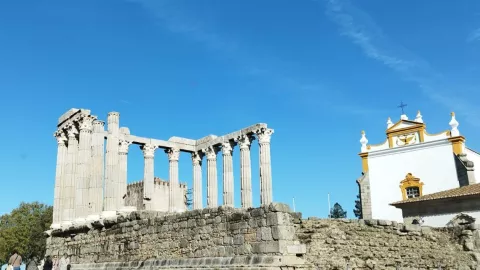
Humans have lived in communities since “ever”… because it is more efficient. Energy communities arise for the same reason – efficiency. Why is such a good idea, so solidly anchored in human behavior, still not there?
I come from the exact sciences, I don't know much about anthropology or sociology, nor am I versed in human or consumer behavior. But I can understand that humans, and even most animals, have lived in communities since “ever”. Apart from the emotional components (let's call them that), I believe the main reason is because it is more efficient. Sharing resources, synergies that arise, specialization – leading to productivity gains, economies of scale driven for producing to serve the many.
Energy communities arise for the same reason - efficiency. Not everyone has roofs suitable for installing solar photovoltaic (PV). Not all people and companies consume the same amount of energy at the same time - they have different work habits; they produce different things.
Recent studies, for specific use cases, demonstrate that the advantages of collective self-consumption usually overcomes that of individual self-consumption due to a better utilization of the installed capacity vis-à-vis energy use.
An energy community - broadly speaking - consists of a group of energy consumers/producers who come together, typically to share the benefits which are inherent to the production of renewable, sharing investment, O&M costs and revenues.
Seems a good idea, right? Right!
And thus it has scaled up and we have thousands of energy communities, namely in Portugal, right?
Wrong.
Technology is widely available – PV panels, inverters and energy management platforms. Regarding management software further maturity is needed as the main energy management systems were designed for individual prosumers… but it’s not rocket science. Electrochemical batteries exist but are still expensive (around 150 €/kWh). Thermal batteries, for example water heaters if we consider a typical household, are mature, cheaper… but still haven’t been perceived as the thermal battery of the energy system – we’ll get there eventually. But the beauty of energy communities is that by combining different consumers / producers we can explore the complementarities and to a great extent, mitigate the use of (non-competitive) energy storage and settle energy balance with only generation and consumption. Competitive storage will likely also take energy communities to another level, allowing for the integration of additional renewable capacity (should regulation allow it) and exploring flexibility to the fullest, interacting with grids and mobility.
So if the bottleneck is not technology… what is it, then? To a large extent regulation / permitting, as permitting institutions are taking time to adapt to a new reality. But there is also the behavior factor, meaning people need to consolidate trust in this novel solution which involves sharing energy or revenues with neighbors, business partners, or even competitors – but demand is already quite strong.
Energy communities’ regulation exists in Portugal since 2019. As of 2023, only 6 energy communities (around 430 if we include collective self-consumption) have been fully permitted and are in operation. At the same time there are at least 16 “energy communities’ projects” on a queue, or around 800 if we include collective self-consumption requests. Permitting seems to be “getting its pace”, but facts are facts and we need to accelerate more.
And what can we do to accelerate this obvious decarbonisation path? I’m sorry as I have more questions than answers, but… let’s try to understand what “share of delay” comes from the administrative permitting process. Is there excessive bureaucracy? Can’t we cut anywhere? Is it a matter of “more hands and computer power” needed at our permitting authorities? Are we best-in-class when compared to other Nations? Can’t we do a sprint to help build this capacity in our public administration, pulling more resources into this critical avenue? Can’t AI help?
We can’t let such a good idea die before it creates the impact we all know it can. Let’s unite tech, business, and regulation to make it happen.



